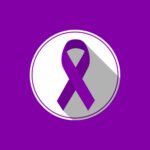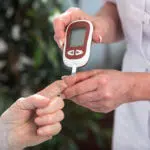What is Epilepsy Awareness Month
Epilepsy Awareness Month timeline
These are a series of official employment statutes designed to remove prejudice against working people with epilepsy.
The stigma is a troubling one — especially when you consider that for years Americans with epilepsy were denied the right to marry.
Phenobarbital, one of the most commonly used medicines to contain or reduce seizures, became the first modern treatment for epilepsy.
Queen Victoria's obstetrician introduced potassium bromide as a way to successfully treat epilepsy.
Epilepsy Awareness Month FAQs
What month is Epilepsy Awareness Month?
Why is purple the color of epilepsy?
Is having epilepsy a disability?
What color ribbon is for seizures?
How to Observe Epilepsy Awareness Month
Register for an epilepsy walk
Communities all over the country will raise funds in a variety of ways including walks. One of the largest is the upcoming 2020 Epilepsy Walk at the National Mall in Washington, D.C. But wherever you choose to walk, remember that you are helping to fight a debilitating disease that affects people of all ages and ethnicities. So, put on your best sneakers and join your friends for a walk to benefit a very good cause.
Add a name to a Remembrance Wall
The Epilepsy Foundation has a Remembrance Wall where you can add the name of a loved one who has passed away from epilepsy or its related causes. You can also establish a sort of wall on your Facebook page or Twitter feed. Ask your friends, family, and anyone else you know who has been affected by epilepsy to sign in the memory of someone else. It's a beautiful and healing thing to do.
Break out the purple.
Each evening, let a purple light shine in your window. Tie purple ribbons around that old oak tree. Bake purple cupcakes and make purple pancakes. Wear a purple pin. Got enough ideas now?
5 Things You Never Knew About Epilepsy
Anyone can have a seizure
People with epilepsy are not the only ones to suffer seizures; your risk may increase if you have high fever, low blood sugar, are undergoing drug or alcohol withdrawal — or even if you're experiencing a concussion following head trauma.
It might be random
Two-thirds of people who suffer from epilepsy have no specific cause for their condition.
Vincent Van Gogh may have had seizures
Art and medical historians speculate that Van Gogh's use of yellow in his paintings resulted from xanthopsia, a condition where the sufferer sees life through a yellow filter. Xanthopsia was a side effect of digitales, a medication used to treat epilepsy.
It's a myth that you can swallow your tongue during a seizure
When someone has a seizure, carefully roll them on their side because if you try to put something in their mouth during a seizure, the person can injure their jaw, chip teeth or damage their gums.
It can be fatal
People with epilepsy who fall, lose consciousness, or have lengthy successions of seizures can die.
Why Epilepsy Awareness Month is Important
It affects the brain
Epilepsy is a neurological condition in the brain that triggers seizures. Doctors believe that a brain's uncontrolled increase of excess electrical activity hampers its normal functions — causing a short interruption to messages traveling back and forth within the brain. This interruption causes epileptic seizures.
It causes different types of seizures
Seizures don't affect everyone the same way. The symptoms range from rapidly blinking eyes to someone going into a state where they stare blankly for a few minutes. Some people suffer a short interval of confusion. The more serious seizures involve falling to the ground with strong muscle contractions followed by a brief disorientation.
It can attack randomly
There are two kinds of epilepsy — crytogenic and idiopathic. Crytogenic people with epilepsy have no clearly identifiable cause for their condition. Idiopathic people with epilepsy show no neurological disorder, but these sufferers have symptoms consistent with people who are officially diagnosed with epileptic syndromes.
Epilepsy Awareness Month dates
| Year | Date | Day |
|---|---|---|
| 2025 | November 1 | Saturday |
| 2026 | November 1 | Sunday |
| 2027 | November 1 | Monday |
| 2028 | November 1 | Wednesday |
| 2029 | November 1 | Thursday |

























































































